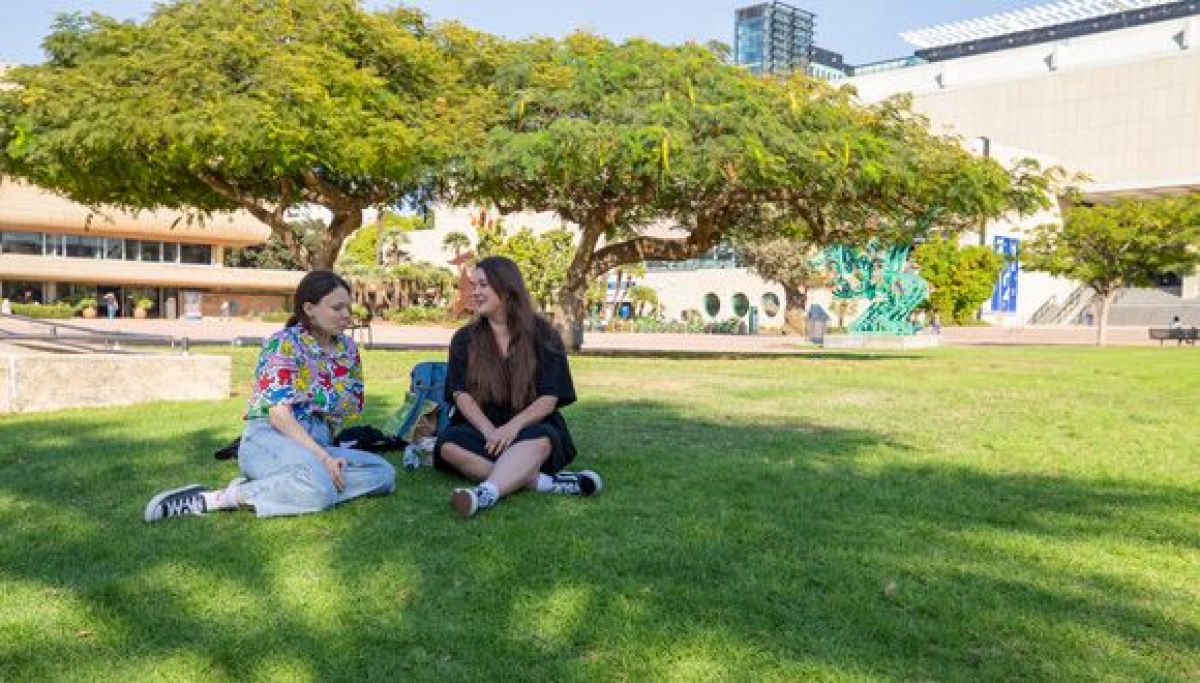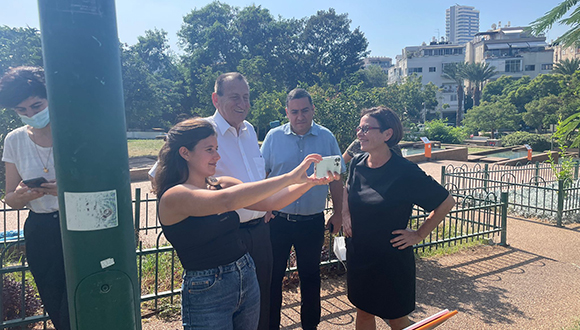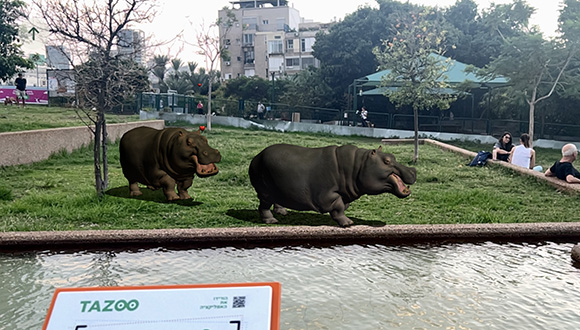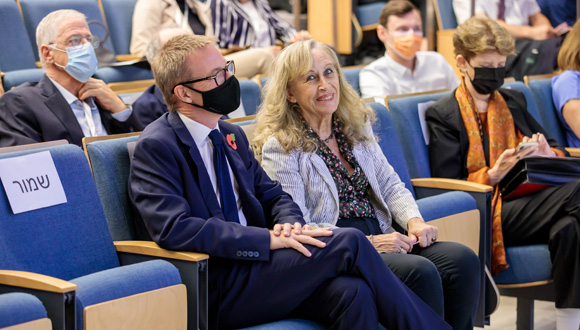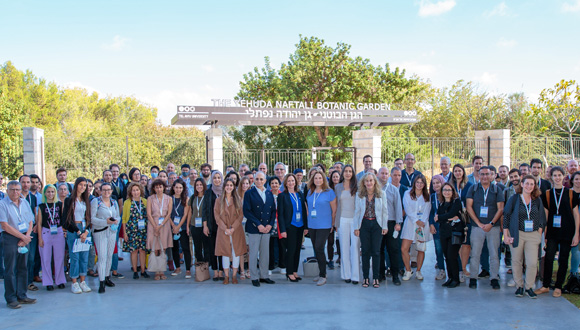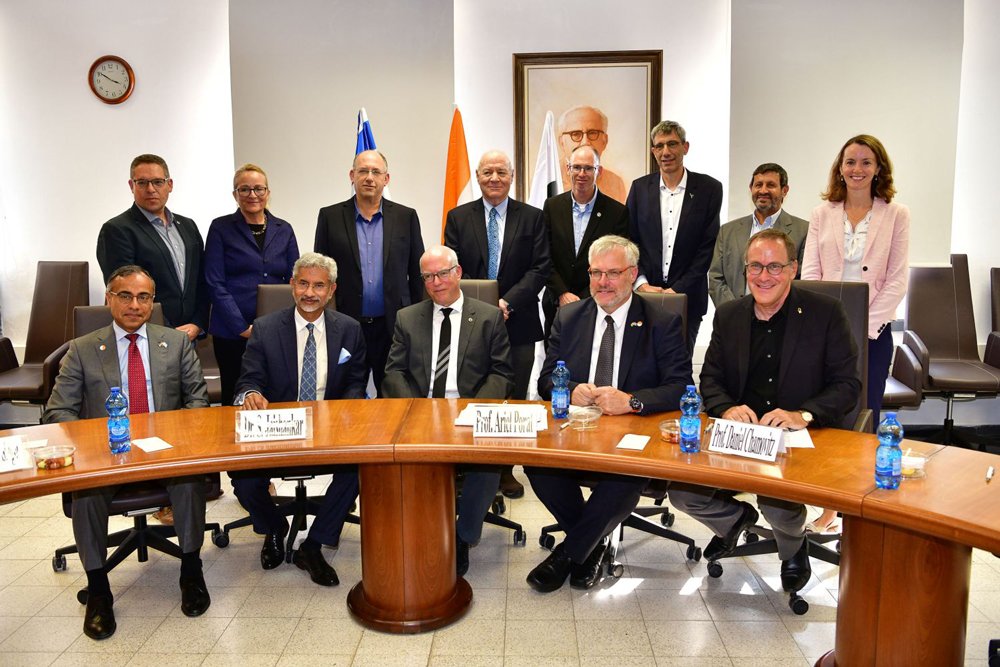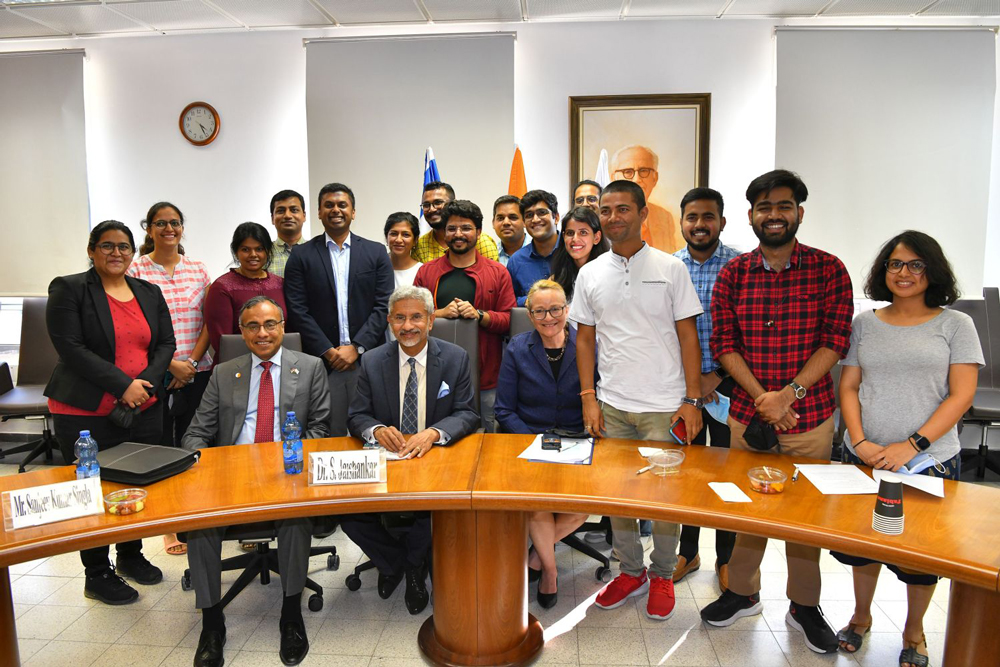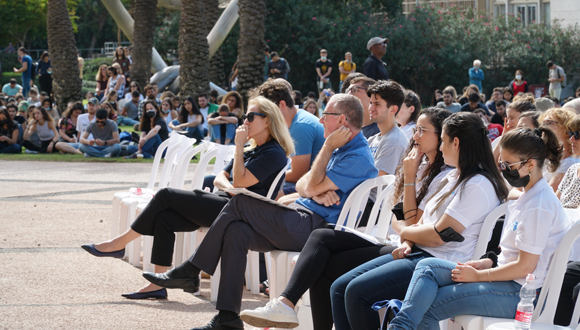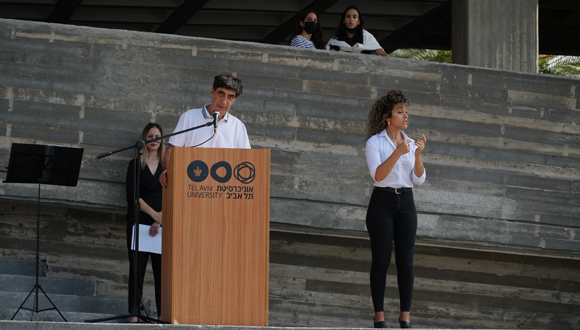TAU Initiates Model for Carbon Neutrality
Climate change efforts among University’s top priorities.
Against the backdrop of the UN Climate Change Conference (COP26) in Glasgow, and following a comprehensive series of tests, TAU prepares to formulate a strategic plan for significantly reducing greenhouse gas emissions generated by its activities and promoting more efficient use of resources and renewable energy. The university places great importance on reducing its environmental footprint by using sustainable energy, recycling water and materials, reducing use of paper, introducing green purchasing procedures and other activities designed to reduce the campus’ carbon footprint, and eventually attain carbon neutrality.
Inspecting Footprints
To this end, a team of academic and administrative experts appointed by TAU’s Green Campus Committee headed by TAU President Prof. Ariel Porat, launched a comprehensive inspection to assess the overall carbon footprint (in terms of CO2 equivalent) and water footprint of all TAU activities both on and off campus. The analysis, which began approximately a year ago, included assessment of the following:
- energy consumption from various sources on campus
- water consumption
- transportation to and on campus
- construction inputs
- pruning and gardening
- waste production and food consumption
- serving utensils and packaging at cafes and kiosks on campus, and more
The team will soon complete their mission and submit their findings to the Green Campus Committee and TAU’s senior management. Based on their report, TAU will formulate a strategic plan for reducing greenhouse gas emissions on campus and reaching carbon neutrality.
“It Can Be Done, And We Will Do It”
TAU President Prof. Ariel Porat: “As a leading academic research and teaching institution in the fields of ecology and environmental science, committed to addressing the climate crisis, TAU established an ‘initiative for carbon neutrality’ about a year ago – the first of its kind at an Israeli university. Currently we are completing the initial inspection, and its findings will serve as a foundation for a strategic plan that will significantly reduce the campus’ carbon footprint, and eventually bring us as close as possible to carbon neutrality. As a leading public university, it is our duty to lead the efforts for addressing the climate crisis on and beyond our campus. We hope that other institutions will join us. Time is running out and we must act immediately.”
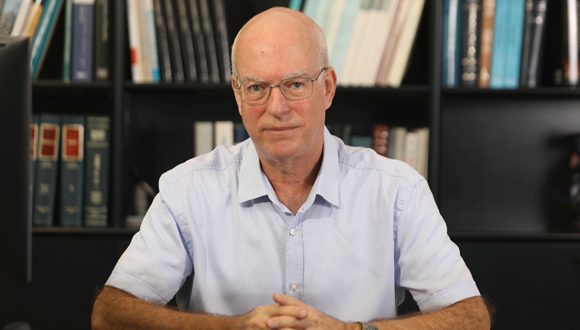
“It is our duty to lead the efforts for addressing the climate crisis on and beyond our campus,” says TAU President Prof. Ariel Porat.
Prof. Marcelo Sternberg of the School of Plant Sciences and Food Security at The George S. Wise Faculty of Life Sciences, co-leader of TAU’s carbon neutrality initiative, added: “I am proud to be part of the team leading an historical move toward reducing TAU’s carbon footprint and turning it into a sustainable institution. The current climate crisis leaves no room for inaction. As a teaching and research institution, we can show the government and society the way to reducing the environmental footprint and ensuring a better world for future generations. It can be done, and we will do it.
Lior Hazan, Chair of TAU’s Student Union, added: “The climate crisis is spreading and intensifying, causing great concern. It is no longer something occurring far away, it is happening right here and now. We, the young people, have the power to change and work for a better future, in face of the gravest crisis of the 21st century, and academia is an excellent place to begin. Students must become leading ambassadors of this cause, since they are the future of society, industry, and leadership, and to this end, we must change and introduce change for the benefit of our planet. The Student Union takes an active part in TAU’s plan to attain carbon neutrality and continues to work for the rapid reduction of environmental damage.”
Ofer Lugassi, Vice President for Construction & Maintenance at TAU emphasized that the mapping of the university’s carbon and water footprints was carried out by a specialized external company, which made a great effort to include all activities on campus.
Featured image: Students enjoying a moment on the increasingly greener TAU campus (Photo: Rafael Ben-Menashe)

